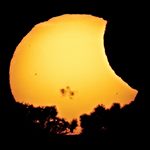
|
A 2026 ECLIPSE OF THE SUN
|
| Home | Itinerary | Map | Ship | Eclipse | Cabins/Costs | Reservations | Contact Info | Disclaimer |
Eclipse Path
An Eclipse for Northern Latitudes
|
Eclipse Path from Greenland to Spain 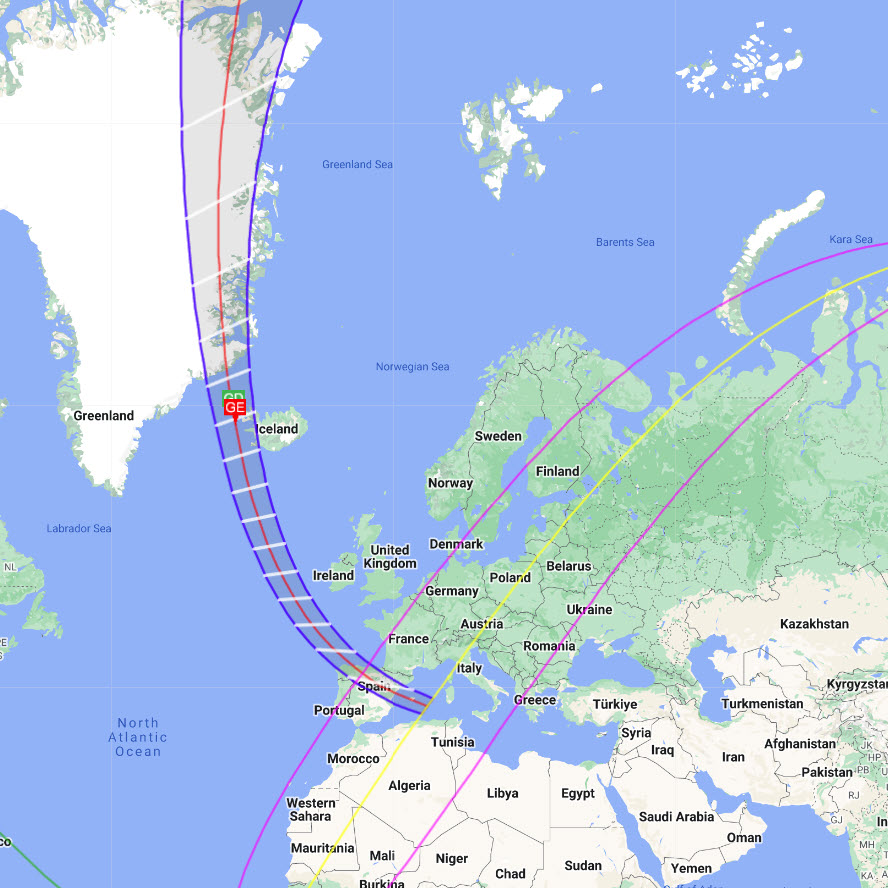 Total Eclipse: Siberia, Arctic, Greenland, Iceland, Spain. Partial Eclipse: Northern North America, West Africa, Europe. Also See Gobal Eclipse Path Map by Fred Espenak. Cred. Eclipse Predictions by Fred Espenak (EclipseWise.com) |
Global Eclipse Path Animation Map 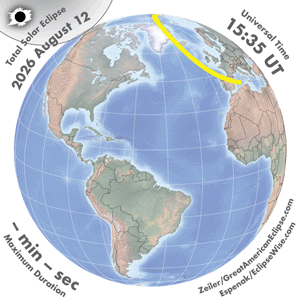 Yellow Line: Path of Totality Black Dot: Total Eclipse Large Circle: Partial Eclipse Cred. Fred Espenak (EclipseWise.com) & Michael Zeiler (GreatAmerican Eclipse) |
||
|
Circumstances Also See: Eclipse Viewing Location Map (Click to Enlarge Chart or get PDF Version) 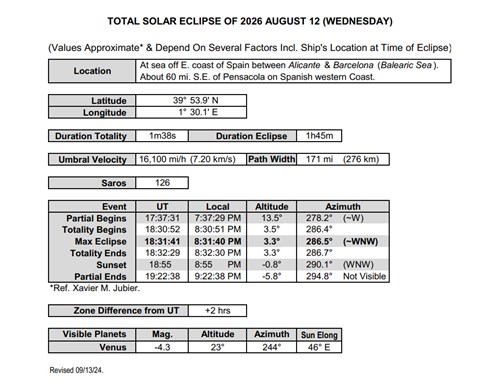 This eclipse belongs to Saros Cycle 126. Learn about Saros 126. |
Eclipse Path Over Spain 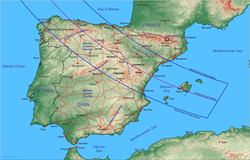
Viewing eclipse from Belearic Sea between Pensacola (on Spain's East Coast) & Belearic Islands allows one to potentially see a "sunset total eclipse".
Cred. Jay Anderson
(Eclipsophile)Also See Google Spain Path Map Cred. Fred Espenak & Google (Eclipse Map Page) And Holland America's Anticipated Eclipse Viewing Location Cred. Xavier M. Jubier |
Sunset After Totality Australia 2002 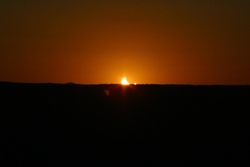
The Sun sets in partial eclipse over the Australian outback shortly after totality ended in 2002.
Cred. Dirk De MolAlso See Photo "Sunset Eclipse" (As Posted on Home Page) |
||
|
Weather
The 2026 August Solar Eclipse Presents Serious
Weather Challenges for Eclipse Chasers but Possibilities Exist
Thus, a Possible Spectacular View
of a Sunset Total Eclipse and a New, Unique Lifetime Experience.
For a detailed description
of climate & weather for this eclipse, be sure to see Eclipsophile by Jay Anderson |
Fractional Cloud Amounts Over Eclipse Path 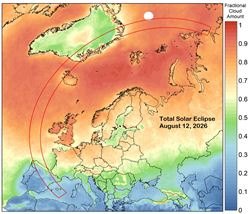
Fig. 1. A polar-satellite-derived cloud-cover estimates for August based on observations collected between 2001 & 2021.
Cred. Jay Anderson
(Eclipsophile)Average August Cloud Cover Over Spain's Eclipse Path 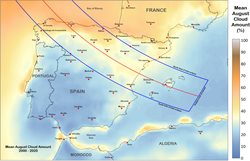
Fig. 3. Average August cloud cover as measured from polar-orbiting satellites between 2002 & 2020.
Cred. Jay Anderson
(Eclipsophile)
|
Average August Cloud Cover Over Eclipse Path 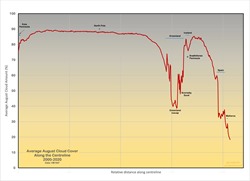 Fig. 2. Cloud amount in percent along center line (same source as Fig. 1). Cloud amounts for North Pole & Snæfellsnes Peninsula, which are not on the centerline, are shown as small crosses at individual cloud values.
Cred. Jay Anderson
(Eclipsophile)
Fractional Cloud Amounts Over Spain 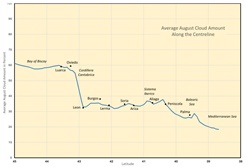
Fig. 4. Cloud-cover trace along north limit, central axis, and south limit of the umbral track over Spain. Data: NASA.
Cred. Jay Anderson
(Eclipsophile)
|
||
| Back to Top of Page | ||||
